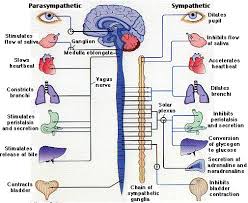Yoga mumbo jumbo may actually work!
Healing after cosmetic plastic surgery is affected by many different factors. None is more important than the patient’s attitude toward surgery and healing.
Here is a list of some factors that influence healing after plastic surgery:
Yoga and plastic surgery
Positive thoughts and attitudes toward healing will improve a patient’s cosmetic surgery results. Plastic surgeons have always known this, but now comes the first glimpse into research that may one day actually prove this notion once and for all.
If you have ever taken a yoga class, you know that the first thing they teach you is how to breathe. You breathe in through your nose, expanding your belly, and then exhale through your mouth, letting the air out of your lungs and and relaxing your abdomen.
Breathing exercises are supposed to relax you and get you in touch with your inner being… etc., etc. Recent research shows that all this breathing stuff may actually work to make you healthier!
The vagus nerve and plastic surgery
nerve
One of the main nerves in the body is the Vagus nerve (Latin for wandering nerve), which wanders from the brain down to the heart, lungs and intestines, regulating their function. If the Vagus fires off, heart rate and breathing are slowed, blood pressure is lowered and stomach motility and emptying of the bladder is increased. It can be thought of as the nerve that relaxes everything! Too much firing and we faint, a so-called “ Vaso-Vagal” reaction. The opposite system to the “parasympathetic” action of the vagus is the “sympathetic” system of nerves in the spinal cord. When these nerves fire, we have a “flight or fight” response. We get all excited!
Researchers have measured what is known as “Vagal tone,” which is associated with health.
When we breathe air in, our heart rate slows ever so slightly, and as we breathe out, our heart rates speeds up a bit. The difference between these two rates is known as “vagal tone.”
Now, it turns out that vagal tone is higher in patients who are healthier and happier. Also, it seems that if you think of yourself as happy and healthy, vagal tone increases—it’s a feedback loop.
Low vagal tone is associated with disease, heart attack and stroke—that is the thready rapid pulse that is barely palpable.
The research showed that patients who thought good thoughts—happy , kind, loving thoughts—were able to increase their vagal tone, which may lead to a more relaxed and stress-free existence. Think those thoughts over a lifetime and you may actually be able to ward off disease and illness.
So the next time you do those “silly” yoga breathing exercises, you may not be as silly as you think.









Recent Comments